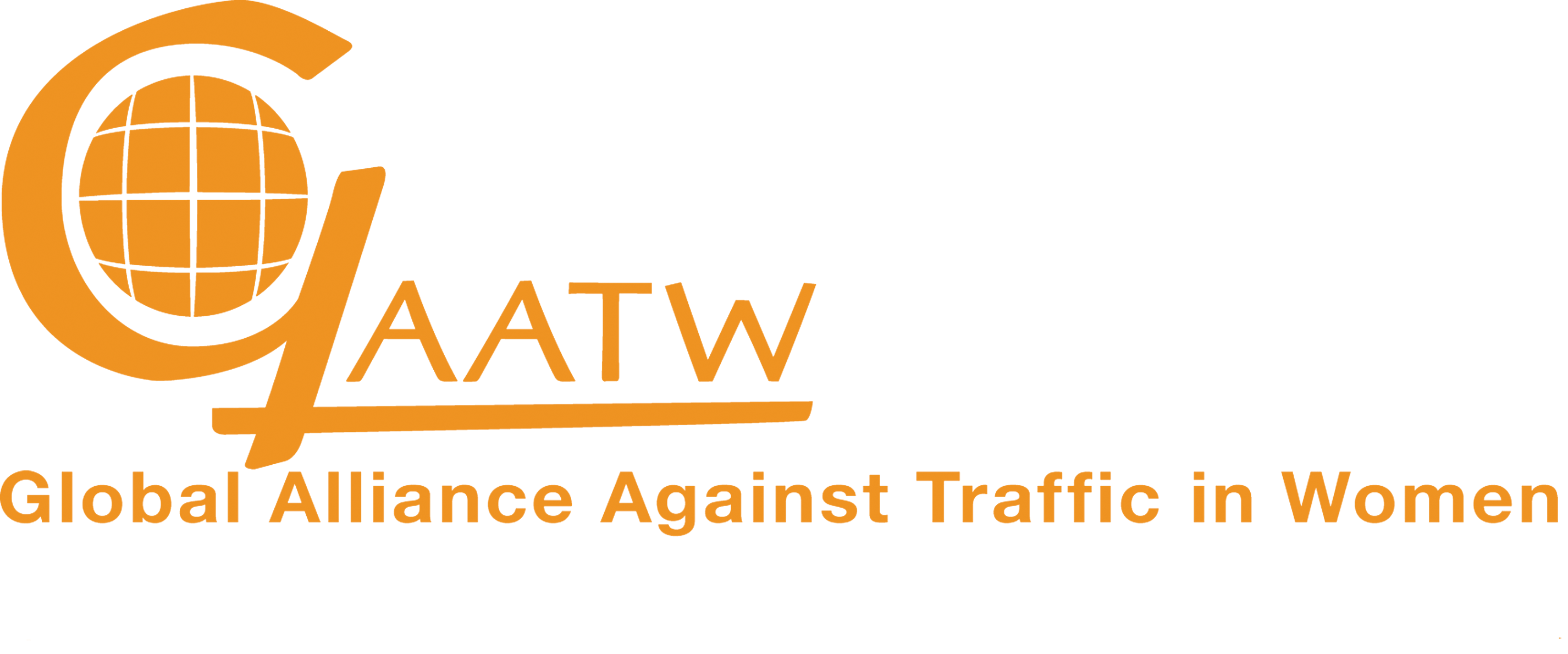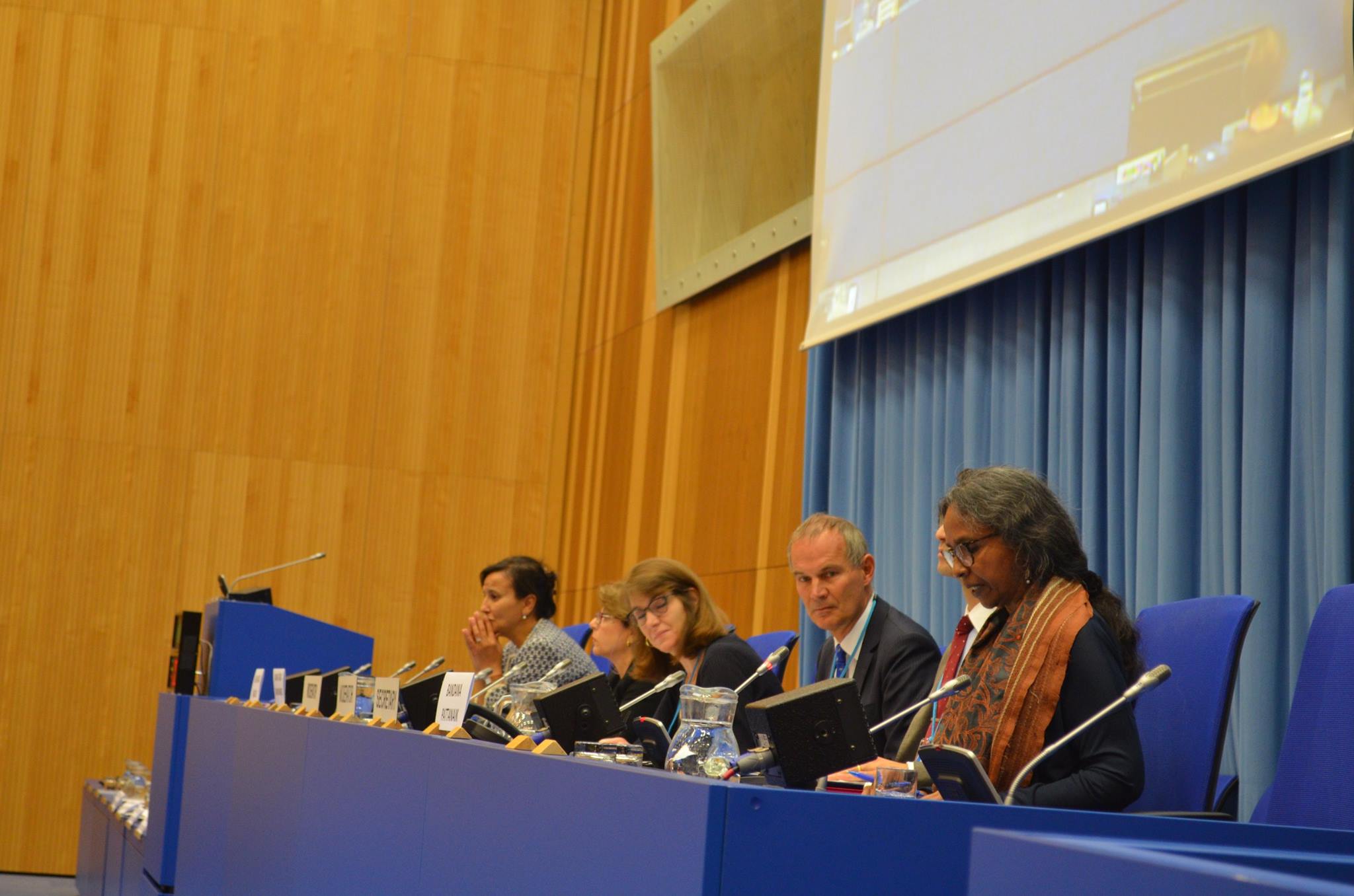New EU Priorities on Trafficking in Human Beings: Time to recognise the contribution of sex worker rights organisations
 Last week the European Commission presented the EU’s new priority actions for addressing trafficking in human beings, broadly combined under three themes: stepping up the fight against organised criminal networks, providing trafficked persons with better access to their rights, and intensifying a coordinated and consolidated response, both within and outside the EU.
Last week the European Commission presented the EU’s new priority actions for addressing trafficking in human beings, broadly combined under three themes: stepping up the fight against organised criminal networks, providing trafficked persons with better access to their rights, and intensifying a coordinated and consolidated response, both within and outside the EU.
Although the priorities aim to treat human trafficking in all sectors equally, there is an underlying focus on the sex industry as a site of exploitation, particularly of women and girls. This is not surprising, as the latest data on identified victims of trafficking in the EU shows that 67% were trafficked in the sex industry and 95% of those were women and girls. Given this focus on trafficking in the sex industry, and the stated need for a broad range of stakeholders to tackle it, the EU needs to recognise the contribution of one stakeholder that has so far been excluded: sex worker rights organisations.
Moving from Precarity to Rights Protections and Decent Work for All Migrants

Global Compact for safe, orderly and regular migration: Irregular migration and regular pathways, including decent work, labour mobility, recognition of skills and qualifications and other relevant measures
12 and 13 October 2017, Vienna
Position paper by the Global Alliance Against Traffic in Women (GAATW)
Recommendations for Alliance 8.7 and the Achievement of SDG 8
IV Global Conference on the Sustained Eradiation of Child Labour
14-16 November 2017, Buenos Aires
Position paper by the Global Alliance Against Traffic in Women (GAATW)
Facilitating migration and fulfilling rights
FACILITATING MIGRATION AND FULFILLING RIGHTS – TO REDUCE SMUGGLING OF MIGRANTS AND PREVENT TRAFFICKING IN PERSONS
Global Compact for safe, orderly and regular migration: Thematic consultation on smuggling of migrants, trafficking in persons and contemporary forms of slavery, including appropriate identification, protection and assistance to migrants and trafficking victims
4 and 5 September 2017, Vienna
Position paper by the Global Alliance Against Traffic in Women (GAATW)
Speech by Bandana Pattanaik at the fifth Global Compact thematic consultation
Speech delivered by Bandana Pattanaik, International Coordinator of the Global Alliance Against Traffic in Women (GAATW), at the fifth thematic consultation ‘Smuggling of migrants, trafficking in persons and contemporary forms of slavery, including appropriate identification, protection and assistance to migrants and trafficking victims’
5-7 September 2017, Vienna, Austria
Panel 3: Appropriate identification, protection, and assistance to migrants and trafficking victims
 First, I want to acknowledge the debt I owe to the many survivors of trafficking and migrant workers, some of whom have organised themselves to advocate for their rights, and whose lived experiences, struggles, extraordinary courage and resilience have taught me what I know about the realities of migration and work in today’s world.
First, I want to acknowledge the debt I owe to the many survivors of trafficking and migrant workers, some of whom have organised themselves to advocate for their rights, and whose lived experiences, struggles, extraordinary courage and resilience have taught me what I know about the realities of migration and work in today’s world.
Before I talk about the issue of rights protection and assistance, I’d like to say a few words about the context in which we currently live and work. The international community has undertaken an extremely ambitious task by deciding to work on a Global Compact for Safe, Orderly and Regular Migration. The world we live in today looks anything but safe and orderly and human security is at an all-time low. Rising income and wealth disparity have polarised people within the same society and the many layers of discrimination and social inequalities have not gone away despite the efforts at several levels in all parts of the world. As the 2017 Oxfam report An Economy for the 99% points out, just eight men have the same wealth as the poorest half of the world. At the World Economic Forum this year, even those who were the most eloquent proponents of economic globalisation a decade ago, called for a fundamental rethinking of the current economic model. The Oxfam report called for a more humane economy, an economy for the 99%! To this worrying data on rising inequality, if we add just two of the more obvious threats to human security - climate change and the crises in democracy in many parts of the world - the bleak picture is almost complete.
Rights-based Governance for Migrants’ Rights
RIGHTS-BASED GOVERNANCE FOR MIGRANTS’ RIGHTS
Global Compact for safe, orderly and regular migration: Thematic consultation on international cooperation and governance of migration in all its dimensions, including at borders, on transit, entry, return, readmission, integration and reintegration
19 and 20 June 2017, Geneva
Position paper by the Global Alliance Against Traffic in Women (GAATW)
Rights on Paper and Rights in Practice: Critical assessment of the implementation of anti-trafficking legislation in Bolivia, Colombia and Guatemala
Governments are responsible to tackle human trafficking and protect and assist trafficked persons. Civil society, for its part, is responsible for monitoring states’ compliance with their obligations and mandates as defined in national and international legislation. To do so, it is necessary to have accurate information how governments implement these policies.
In 2016, Fundación la Paz in Bolivia, Corporación Espacios de Mujer in Colombia and ECPAT in Guatemala, together with the Global Alliance Against Traffic in Women (GAATW), carried out an assessment of the implementation of anti-trafficking legislation in the three countries. What we found was that there was still a significant gap between the rights that trafficked persons are entitled to ‘on paper’ and the services that they receive in practice.
The assessment allowed us to systematise the available information on human trafficking in the three countries, giving clarity about the responsibilities of each governmental body and the degree of compliance. Although policies can be improved, it would be a good starting point for governments to at least fulfil their existing obligations.
Rights and Justice for Migrant Women in the Changing World of Work
In the past several decades globalisation, unequal development between and within countries, and conflict and environmental degradation, have prompted unprecedented levels of international migration. It is estimated that there are currently nearly 250 million migrants worldwide, half of whom are women. In developed countries, demographic changes, such as aging societies, a larger female workforce, and labour market shortages prompted by a move towards service-oriented economies have created a demand for (low-wage) female workers, especially in the hospitality and care work sectors, and the entertainment sector. In developing countries, economic restructuring and industrialisation have led to the loss of traditional livelihoods, with a disproportionate effect on women, pushing many to seek work outside their communities. At the same time migration policies have not responded to this change in labour market supply and demand, leading to increasingly precarious migration and work for many women, especially those with lower education and social status.
In the past 20 years, feminists, including GAATW, have tried to bring attention to the violence, abuse and exploitation that women experience in the process of their labour migration. GAATW has tried to stress women’s perspectives, and had detailed the unintended consequences of protectionist policies like the anti-trafficking initiatives undertaken by states in ‘Collateral Damage’ back in 2007. However, the conversation about trafficking has backfired and contributed to further violating the rights of migrating women. Governments of destination countries have restricted migration opportunities, especially for low-wage workers, and increased border controls, while origin countries have placed restrictions on women’s mobility, to ‘protect’ them from trafficking. However, instead of protecting the migrant women workers, these restrictions have led to a market for clandestine and debt-financed migration, leading to the very vulnerabilities including risk of violence and trafficking that they were intended to prevent.
